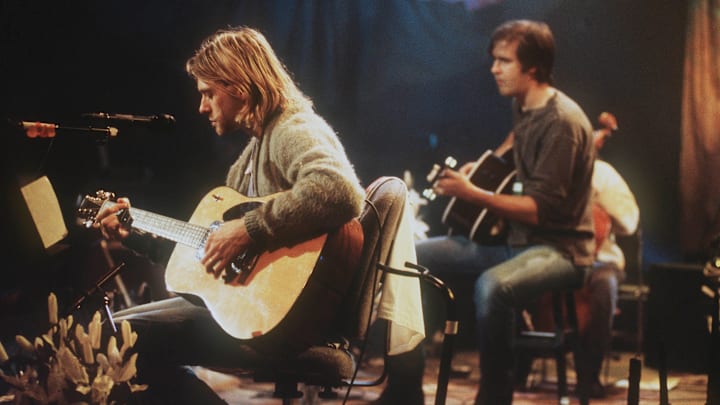The 1990s was, for some, the last great decade for guitar music. There was the garage rock revival in the 2000s, but it's inarguable that grunge, nu-metal and even ska dominated the cultural zeitgeist in a way that's been nearly impossible to replicate in the 21st century.
There's a lot of romanticism attached to the 90s, especially when it comes to rock music, and a big part of why is because so many bands were frozen in time. They were never given the chance to get old, or progress, due to the tragic deaths of founding members.
This list discusses the 90s bands who lost their founding members in the 90s, meaning Soundgarden and Alice In Chains do not qualify (tragic as the losses of their respective frontmen were). Here goes nothing:
Sublime (Bradley Nowell)
Sublime managed to combine ska, punk and reggae into a hybrid that was undeniably catchy. They got their start in the late 80s, but it was the release of their self-titled album in 1996 that proved to be their coming out party. The album went five times Platinum and spawned several classic singles.
The problem, unfortunately, was that lead singer Bradley Nowell was already dead by the time the album came out. Nowell overdosed on heroin two months before Sublime hit shelves, and the band was never able to regain its cultural momentum. They're still around, with Nowell's son Jakob as lead singer, but ever die-hard fans concede that it's not the same.
Blind Melon (Shannon Hoon)
Blind Melon sounded nothing like Sublime, but they too thrived on a bizarre combination of sounds. They were steeped in the Southern rock of the 1970s, but frontman Shannon Hoon have the band a freaky, eclecticism that translated perfectly on the smash single "No Rain" in 1993.
The band's debut album went four times Platinum, but Hoon's increasingly debilitating drug problems was cited by many as the cause of their underwhelming follow up, Soup (1995). The singer died a few months after the album's release, leading to decades of inactivity and underwhelming attempts to reform. Soup is worth a second look, though. A much better album than it's reputation suggests.
The Gits (Mia Zapata)
Perhaps the most tragic case of a fallen band member on the list. The Gits were part of Seattle's burgeoning music scene in the early 1990s, and their debut album, Frenching the Bully (1992), is a perfect encapsulation of their frenetic appeal.
Sadly, Mia Zapata was murdered in 1993 after walking home from a local music venue. The lead singer's death devastated the Seattle community, and many of its bands, including Nirvana, Pearl Jam and Soundgarden, raised money to hire a private investigator in an attempt to find the culprit. The investigation proved successful, and Zapata's killer was convicted, but the Gits never played again.
Gin Blossoms (Doug Hopkins)
Gin Blossoms were worlds away from the Seattle, in terms of both sound and geography. They were founded in Tempe, Arizona, and rose to fame with a vibe more akin to power pop than grunge. It led to massive success, as evidenced by debut album New Miserable Experience in 1992.
Doug Hopkins, the band's lead guitarist and songwriter, was plagued by alcoholism during the making of the album, however, and fired shortly after its release. He died by suicide a year later. Gin Blossoms managed to release a successful follow up, Congratulations I'm Sorry, in 1996, but it took them nearly a decade to come up with a fourth album. The consensus? They could never recapture their spark.
Mother Love Bone (Andrew Wood)
Mother Love Bone was another formative Seattle band. They were active from 1988 to 1990, just making our list, but their impact on the grunge movement that followed cannot be overstated. The band would have likely broken big were it not for the death of their singer, Andrew Wood, in March 1990.
Mother Love Bone only released one album, Apple (1990), before going their separate ways. Jeff Ament and Stone Gossard, the band's bassist and guitarist, respectively, would go on to form Pearl Jam a year later, and the rest is Seattle history. They would subsequently tribute to Wood with the supergroup Temple of the Dog.
Nirvana (Kurt Cobain)
You knew Nirvana was coming. The defining Gen X band dropped two classics Nevermind (1991) and In Utero (1993), as well as a seminal MTV Unplugged and a debut album, Bleach (1989), that honestly deserves more respect. Unfortunately, their meteoric rise came crashing down in 1994, when singer and lead guitarist Kurt Cobain died by suicide.
Cobain's death devastated the world, and effectively signaled the end of grunge's golden age. Decades later, it remains one of the greatest losses in the history of rock music.
